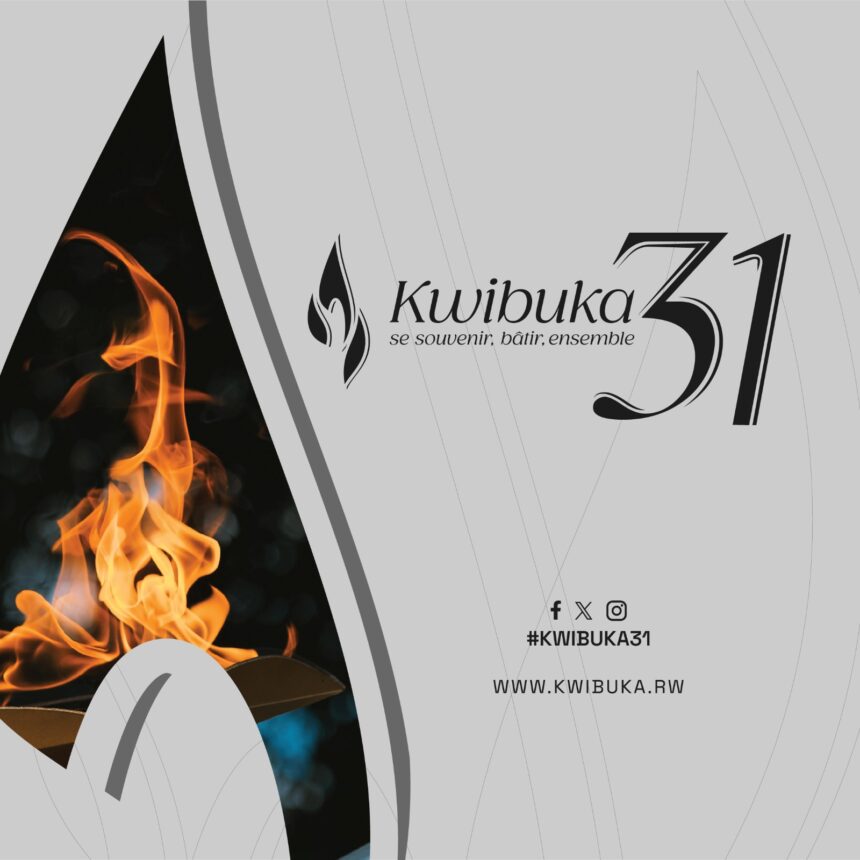Every year in April, Rwanda pauses. Streets fall quiet, music ceases, and conversations become softer. It is a time for remembrance—a solemn period known as Kwibuka, meaning “to remember” in Kinyarwanda. This year marks 31 years since the 1994 Genocide against the Tutsi, a tragic chapter that claimed over a million lives in just 100 days.
But Kwibuka 31 is more than an act of remembering. It is a moment of reflection, resilience, and a testament to Rwanda’s remarkable journey from ashes to hope.
A Nation Torn Apart
The 1994 genocide was one of the darkest episodes in human history. Neighbors turned against neighbors, families were shattered, and a nation was left bleeding—its soul bruised by hate, fear, and loss. The world watched in horror but largely failed to intervene. The pain runs deep, and for survivors, the wounds may never fully heal. Yet amidst the sorrow, Rwanda chose a path few could have imagined.
Kwibuka 31; The Power of Memory and Unity
Kwibuka is not just about remembering the dead; it is also about honoring the living—those who chose forgiveness, who chose to rebuild. Rwandans did not allow their past to define them but rather to shape a future rooted in unity, justice, and dignity.
Through Gacaca courts, community justice was pursued. Through survivor stories, collective healing began. Through policy and political will, reconciliation became not just a possibility, but a reality.
Today, Rwanda is hailed as a model for post-conflict recovery—an African nation that faced the unimaginable and emerged with clarity of purpose and strength of vision.
Rising with Intention
In the decades since 1994, Rwanda has undergone one of the most remarkable social and economic turnarounds in modern history. From a country ravaged by division and despair, it has emerged as a beacon of what disciplined governance, visionary leadership, and collective unity can achieve.
According to the World Bank’s 2024 Rwanda Economic Update, the country’s GDP grew by 8.2% in 2023, driven by investments in infrastructure, services, and an increasingly vibrant tech sector. Rwanda’s ambitions are bold but intentional—rooted in its Vision 2050 plan to become an upper-middle-income country within a generation.
Read More: What the New 10% U.S. Tariff on Kenyan Exports Mean — and How Kenya Can Turn the Tide
Kigali: Africa’s Conference Capital
Today, Kigali is fast becoming Africa’s rising hub for global diplomacy, innovation, and collaboration. With world-class infrastructure, seamless digital services, and a reputation for safety, Rwanda has successfully positioned itself as a preferred host for high-level events—from the Commonwealth Heads of Government Meeting (CHOGM) to the Africa CEO Forum, and most recently, the Inclusive Fintech Forum.
These aren’t just events. They are signals—proof that the world now looks to Rwanda as a place where serious conversations happen, where partnerships are built, and where the future of the continent is being shaped.
A Destination for Business and Innovation
Beyond its symbolism, Rwanda is rapidly emerging as a practical destination for doing business. Ranked second in Africa for ease of doing business (World Bank, Doing Business Report), the country has invested heavily in creating a digital-first environment. Paperless visa systems, online business registration, a cashless economy, and universal broadband connectivity are not just buzzwords here—they are daily realities.
Tech startups and global companies alike are finding Rwanda’s regulatory frameworks, tax incentives, and talent pipeline increasingly attractive. The Kigali Innovation City, for example, is poised to become a Pan-African knowledge and tech hub—bringing together academia, incubators, and investors under one futuristic ecosystem.
Honoring the Past, Building Forward
As we mark Kwibuka 31, we do so with a deep reverence for the lives lost and the lessons learned. But we also celebrate the Rwanda of today: a country that refuses to be defined by tragedy and instead chooses to be defined by tenacity, innovation, and unity.
The journey is far from over. But Rwanda has shown that with intention and integrity, a nation can rise—not in spite of its past, but because of how it chooses to remember it.

6 Comments